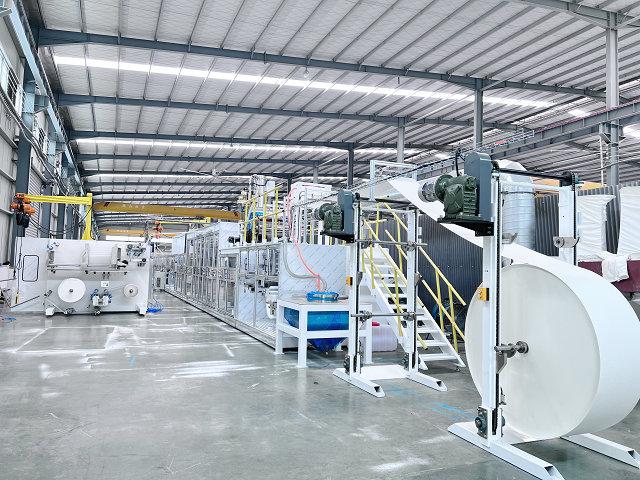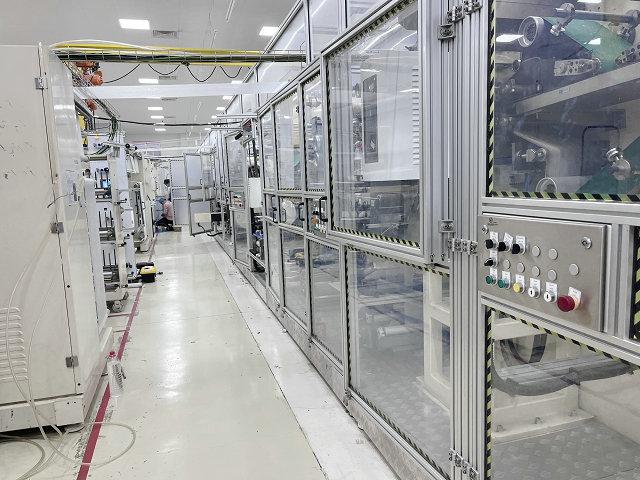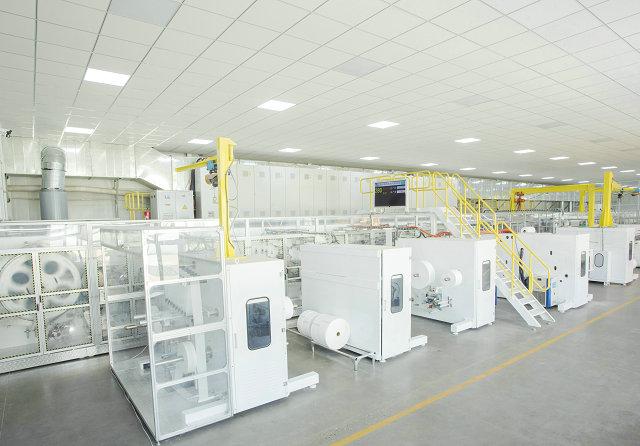Author:Haina Machinery Factory FROM:Diaper Machinery Manufacturer TIME:2023-10-16
Efficient Usage of Sanitary Making Machine in the Hygiene Products Industry

The hygiene products industry plays a vital role in ensuring cleanliness and well-being in our daily lives. With the increasing demand for sanitary products, manufacturers are continuously seeking ways to enhance productivity and efficiency. One significant aspect of this optimization process is the efficient usage of sanitary making machines. In this article, we will explore the benefits and techniques of utilizing these machines effectively, ultimately improving the overall productivity and quality of hygiene product manufacturing.

In the highly competitive hygiene products market, meeting the demand while maintaining product quality is crucial for manufacturers. Efficient usage of sanitary making machines can significantly increase production output, allowing manufacturers to meet customer requirements efficiently. By optimizing the machine settings, such as adjusting speed, temperature, and material input, manufacturers can ensure a smooth and continuous production process. Additionally, regular maintenance and inspection of the machines can minimize downtime and prevent unexpected breakdowns, further improving productivity.

Producing high-quality hygiene products is essential to gain customer trust and loyalty. Sanitary making machines offer various features that can enhance product quality. For example, modern machines equipped with advanced sensors and monitoring systems can detect defects or irregularities during the production process. By promptly identifying and addressing these issues, manufacturers can minimize product defects and maintain consistency in product quality. Moreover, utilizing automation features in sanitary making machines ensures precise cutting, folding, and sealing, resulting in uniform products that meet or exceed customer expectations.
Efficient usage of sanitary making machines not only improves productivity and quality but also contributes to waste reduction and cost savings. By optimizing the machine's settings and process parameters, manufacturers can minimize material wastage, resulting in significant cost savings. Additionally, precise control over materials, such as adhesive and elastic, reduces overconsumption and ensures optimal utilization. Moreover, advanced sanitary making machines often come with energy-saving technologies, reducing power consumption and further reducing operational costs. By reducing waste and optimizing resources, manufacturers can achieve a more sustainable and environmentally friendly production process.
In conclusion, efficient usage of sanitary making machines plays a crucial role in enhancing productivity, improving product quality, and reducing costs in the hygiene products industry. Manufacturers should strive to optimize machine settings, perform regular maintenance, and utilize automation features to increase production output, enhance product quality, and reduce waste. By embracing these techniques, manufacturers can stay competitive in the market while delivering high-quality sanitary products that meet customer expectations.
